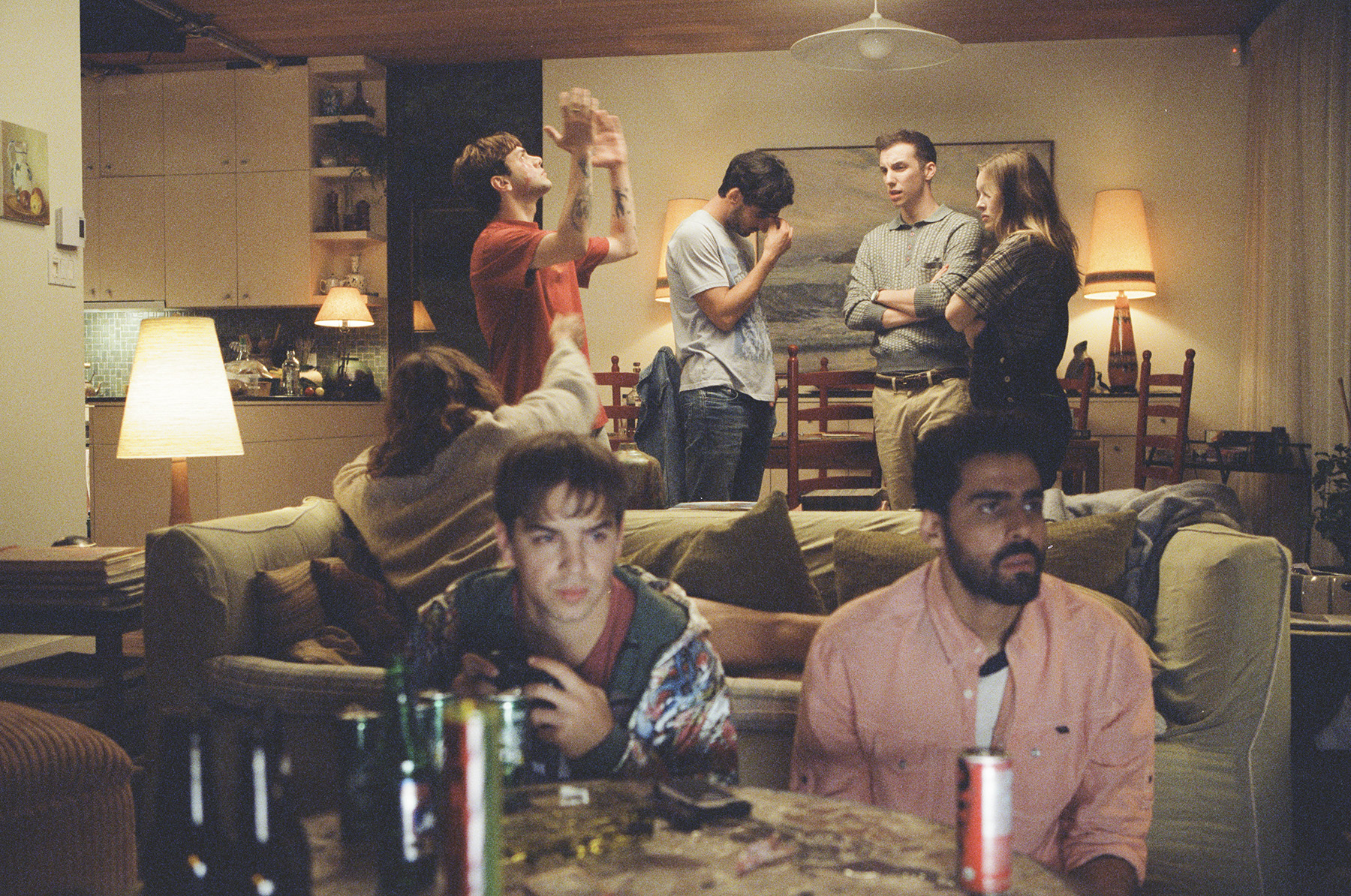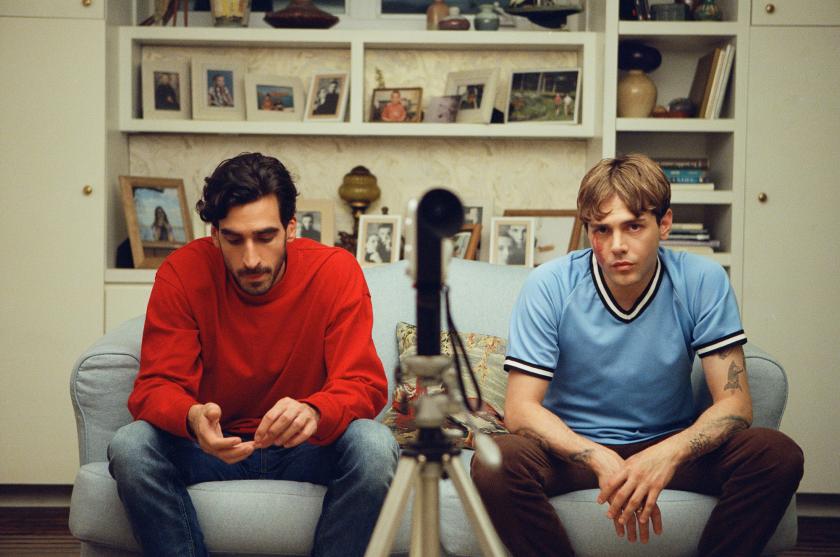It has been ten years since Canadian auteur Xavier Dolan first debuted I Killed My Mother at the Cannes Film Festival. A decade on he returns in competition with a title that shows an evolution of his filmmaking that leaves behind many of the problems of his previous work.
Matthias & Maxime is certainly more accessible, and will appeal to mainstream sensibilities as a tenderly rendered examination of male friendship. Thankfully, this feature allows Dolan to step away from the enfant terrible image that has been thrust upon him. It’s altogether more meditative – calmer, even – and all the better for it.
The film focuses on the anxiety that comes with turning 30 (as Dolan has recently). What have I achieved? Will I make my mark? Who am I? The subject matter may be about insecurity, but Dolan seems more confident than ever in his own direction. Gone are the dramatic fireworks, instead he focuses on peeling back layers of modern masculinity among a group of childhood friends. The title characters, played by Gabriel D'Almeida Freitas and Dolan, are the main protagonists. We are drip-fed information about the dynamics of their relationship, and what begins as a bromance becomes something closer to a romance. Refreshingly, but not surprising for Dolan, binary sexuality is banished. There is a fluidity to love. The initial set-up is a house party outside Quebec, where the central characters are conned into starring in a student short film by a friend’s obnoxious little sister. They have to kiss as part of the role, but Dolan cannily cuts before we see it happen. This kiss is the trigger that causes Matthais to question everything, from his high-flying job to how he feels about Maxime. But Max has his own problems, including an absent brother and his ex-addict mother, and is planning to go to Australia for two years.
Refreshingly, but not surprising for Dolan, binary sexuality is banished. There is a fluidity to love. The initial set-up is a house party outside Quebec, where the central characters are conned into starring in a student short film by a friend’s obnoxious little sister. They have to kiss as part of the role, but Dolan cannily cuts before we see it happen. This kiss is the trigger that causes Matthais to question everything, from his high-flying job to how he feels about Maxime. But Max has his own problems, including an absent brother and his ex-addict mother, and is planning to go to Australia for two years.
The friendship group rings with authenticity. There are in-jokes, old grudges, and an almost boyish camaraderie. The film’s fringe characters are thinly wrought, forgivable only because of the strength of Dolan’s exploration of Matthias and Max’s friendship.
Dolan has already demonstrated his skill in terms of craft, and this is no different. Yet it can also be part of the problem with Dolan’s films. He’s sometimes guilty of over-working the material and liable to linger on symbolic shots (look out for the groan-inducing dying plant metaphor) a little too long. There’s also a clunky temporal device to heighten the drama, which ends up knocking viewers out of the emotion of the film.
Most frustrating of all is how Dolan decides to end the film. It undercuts the emotional richness of what has come before, and instead feels self-satisfied and a bit cheap. These issues aside, at least we can be pleased that, eight films into his career, the director is maturing in exciting ways, improving with every title, and learning from mistakes of the past.















Add comment